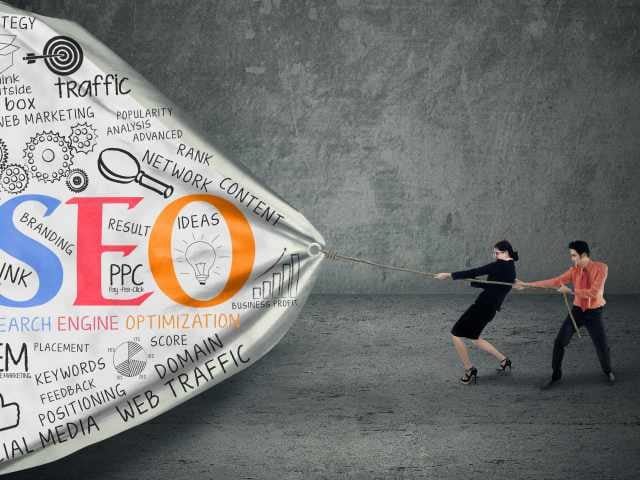In the ever-evolving landscape of digital marketing, businesses constantly seek innovative ways to enhance their ad campaigns, aiming to capture the attention of potential customers and drive conversions. One of the most transformative advancements in this arena is Artificial Intelligence (AI). By leveraging AI, companies can now optimize their ad campaigns with unprecedented precision and effectiveness. In this blog post, we will explore how AI plays a pivotal role in ad campaign optimization, uncovering its benefits, applications, and future potential.
The Emergence of AI in Digital Marketing
Artificial Intelligence, once a futuristic concept, has now become a cornerstone of modern digital marketing strategies. AI encompasses various technologies, including machine learning, natural language processing, and data analytics, all of which contribute to more intelligent and adaptive advertising practices. Its integration into ad campaign management is driven by the need for more targeted, efficient, and cost-effective advertising solutions.
Enhancing Targeting Precision
One of the most significant advantages of AI in ad campaign optimization is its ability to enhance targeting precision. Traditional advertising methods often relied on broad demographics or generic interests, resulting in wasted ad spend and lower conversion rates. AI, however, leverages vast amounts of data to create highly refined audience segments.
Behavioral Analysis: AI algorithms analyze user behavior patterns, such as browsing history, purchase behavior, and social media interactions, to identify potential customers who are more likely to engage with a particular ad. This allows marketers to deliver personalized content to users who have shown a genuine interest in similar products or services.
Predictive Analytics: By examining historical data and identifying trends, AI can predict future behavior and preferences. This predictive capability enables advertisers to anticipate what kind of content will resonate with their target audience, allowing for more effective campaign strategies.
Real-Time Optimization
Ad campaigns are dynamic, and their effectiveness can fluctuate based on various factors, such as market trends, seasonal changes, and competitor activities. AI provides the ability to adapt and optimize campaigns in real-time, ensuring that marketing efforts remain relevant and impactful.
Automated Bidding: AI-powered platforms can automate bidding processes, adjusting bids based on real-time data to maximize ad performance. This means that ads are shown to users at the optimal times and at the most effective bid amounts, improving return on investment (ROI) and reducing unnecessary expenditure.
Dynamic Creative Optimization (DCO): AI can also optimize ad creatives by testing different variations and determining which elements perform best with specific audience segments. This continuous testing and learning process helps in delivering more engaging and relevant ad content, increasing the likelihood of conversions.
Improved Ad Copy and Design
Creating compelling ad copy and design is crucial for capturing audience attention and driving engagement. AI assists in this area by providing insights into what resonates with users and generating high-quality content.
Natural Language Processing (NLP): AI-powered tools equipped with NLP can analyze and understand user sentiment, enabling marketers to craft ad copy that aligns with the emotional tone and preferences of their target audience. Additionally, AI can suggest language and phrases that are more likely to elicit a positive response.
Design Assistance: AI tools can also aid in ad design by recommending layouts, color schemes, and visual elements based on data-driven insights. These tools can analyze the performance of various design elements and suggest modifications to enhance visual appeal and effectiveness.
Data-Driven Insights and Reporting
Effective ad campaign management relies on data analysis and reporting to gauge performance and make informed decisions. AI simplifies this process by providing comprehensive data-driven insights and generating actionable reports.
Advanced Analytics: AI can process and analyze large volumes of data quickly, uncovering patterns and trends that might be overlooked by human analysts. This allows marketers to gain a deeper understanding of campaign performance and user behavior, leading to more strategic decision-making.
Automated Reporting: AI-powered reporting tools can automate the generation of performance reports, saving time and reducing the potential for human error. These reports can provide detailed insights into key metrics, such as click-through rates, conversion rates, and cost per acquisition, enabling marketers to track progress and optimize strategies effectively.

Enhancing Customer Experience
AI’s role in ad campaign optimization extends beyond improving ad performance; it also contributes to enhancing the overall customer experience. By delivering more relevant and personalized ads, AI helps create a more engaging and satisfying interaction for users.
Personalized Recommendations: AI algorithms can recommend products or services based on individual preferences and past behavior. This personalized approach not only increases the likelihood of conversion but also enhances user satisfaction by providing relevant and timely suggestions.
Chatbots and Virtual Assistants: AI-powered chatbots and virtual assistants can engage with users in real-time, answering queries and providing assistance. This immediate support enhances the customer experience and can drive conversions by addressing potential concerns or questions.
Future Prospects and Challenges
As AI continues to advance, its role in ad campaign optimization is expected to grow even more significant. Emerging technologies, such as AI-driven creative tools and advanced predictive analytics, will further refine advertising strategies and improve outcomes.
However, there are challenges to address, including concerns about data privacy and ethical considerations in AI-driven decision-making. Marketers must navigate these issues carefully to ensure that AI is used responsibly and transparently.
Conclusion
Artificial Intelligence has revolutionized ad campaign optimization by offering precise targeting, real-time adjustments, improved creative development, and data-driven insights. Its ability to analyze vast amounts of data and adapt strategies accordingly has transformed the way businesses approach digital advertising. As technology continues to evolve, AI will undoubtedly play an increasingly crucial role in shaping the future of ad campaign management, driving efficiency, and enhancing the overall effectiveness of marketing efforts. For businesses looking to stay ahead in the competitive digital landscape, embracing AI is not just an option—it’s a necessity. For more information or to read all about the role of AI in Ad campaign optimization, please visit https://teleadsagency.com/ to learn more.





